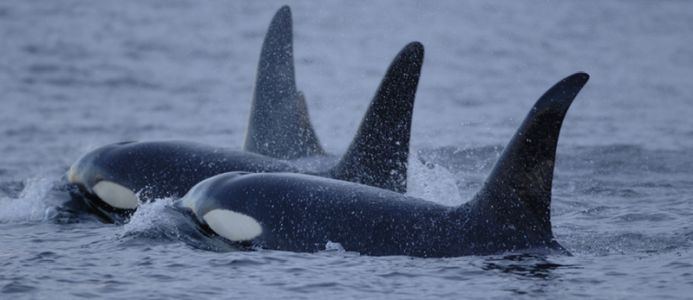 Why do the matriarchs of orca pods often live such long lives? The average lifespan for male killer whales is about 30 years, but they can live up to at least 60 years. Females typically live about 50 years, but can live up to at least 90 years in the wild. The pod matriarch can live even longer.
Why do the matriarchs of orca pods often live such long lives? The average lifespan for male killer whales is about 30 years, but they can live up to at least 60 years. Females typically live about 50 years, but can live up to at least 90 years in the wild. The pod matriarch can live even longer.
Take the orca designated by researchers as L25, for example. The Seattle Times reports that L25 is the world’s oldest known living wild orca, the uncontested reigning matriarch of the southern resident orcas that frequent Puget Sound. She ascended to that post after the death of J2, in 2017 at an estimated age of 105.
No one knows exactly how old L25 is, said Michael Weiss, research director of the nonprofit Center for Whale Research.
But “our best estimate is she is approaching 100 years old right now,” Weiss said. The original estimate for her year of birth was 1928 when the center’s census of the J, K and L pods began in 1976, Weiss said. His personal guess is that she might be anywhere from her mid-80s to her mid-90s.
But who’s counting – she is going strong whatever her age. “She looks fine, she looks good; these old whales don’t outwardly age very much,” Weiss said. “They don’t get wrinkles; they don’t get decrepit. She is very much large and in charge.”
But why are these orca matriarchs so long-lived? The answer may be menopause.
Researchers at the University of Exeter looked at five species of whales that go through menopause. Their findings, published in the journal Nature, suggest the trait evolved so that older females can help care for younger generations.
What the researchers found was that the overall life span of the species that go through menopause was much longer than species that don’t — creating more opportunity for overlap between generations in family groups.
They found females of five “menopausal” species – narwhals and beluga, short-finned pilot, false killer, and killer whales – lived about four decades longer than other toothed whales.
The findings lend support to a long-standing idea called the “grandmother hypothesis” — that older females in a handful of species forgo reproducing to instead support their offspring’s offspring.
Dr. Sam Ellis, from the University of Exeter, who led the research, said in some whale species evolution had selected for a longer female lifespan so mothers and grandmothers could continue to support their family long after the end of their own reproductive life.
“We see just the same patterns in human societies, where women have a reproductive period similar to that of our closest primate relatives but have a much longer total lifespan,” he said.
Thanks to Alaric Bond for contributing to this post.
